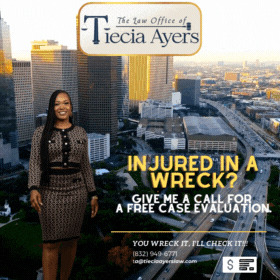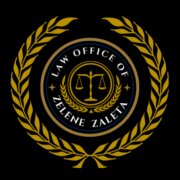Best Drug Crime Lawyers in Texas
Share your needs with us, get contacted by law firms.
Free. Takes 2 min.
Or refine your search by selecting a city:
List of the best lawyers in Texas, United States
About Drug Crime Law in Texas, United States
Drug crime law in Texas refers to the set of statutes and regulations that govern the illegal use, possession, manufacture, and distribution of controlled substances within the state. Texas enforces some of the harshest penalties for drug offenses in the United States, with a strong focus on deterrence and punishment. The Texas Controlled Substances Act categorizes drugs into penalty groups and prescribes specific punishments based on the type and quantity of the drug involved. Drug offenses can range from simple possession to large-scale trafficking, and consequences can vary significantly depending on the specific circumstances.
Why You May Need a Lawyer
Individuals may need legal representation in drug crime cases for several reasons. If you have been arrested or charged with any drug-related offense, such as possession, distribution, manufacturing, or trafficking, legal help is crucial. Even minor infractions can lead to criminal records, hefty fines, loss of driving privileges, or incarceration. Legal counsel becomes especially important if:
- You are facing felony or repeat offense charges
- You are accused of possessing large amounts or intent to distribute
- Your property was searched or seized by law enforcement
- You were arrested near a school, park, or other protected zone
- You believe your rights were violated during the investigation or arrest
- You are navigating plea deals or are considering drug court programs
- You need help negotiating reduced charges or expunging your record
An experienced lawyer can help protect your rights, build a strong defense, and work toward the best possible outcome for your case.
Local Laws Overview
Texas has a complex framework for drug law enforcement, regulated primarily by the Texas Controlled Substances Act. Drugs are sorted into Penalty Groups, which include substances such as cocaine, heroin, methamphetamine, and prescription drugs, as well as marijuana and its derivatives. Key aspects of Texas drug laws include:
- Penalty Groups: Drugs are categorized from Penalty Group 1 (most serious) to Penalty Group 4 (least serious), with unique groups for marijuana and certain prescription medications.
- Possession Offenses: Penalties depend on the type, quantity, and location of the offense. Simple possession of a small amount may be classified as a misdemeanor, while larger amounts are generally felonies.
- Distribution and Trafficking: Selling, delivering, or manufacturing drugs leads to far harsher penalties than possession, often involving mandatory prison time.
- Enhanced Penalties: Certain circumstances, such as offenses committed near schools or involving minors, can lead to enhanced sentencing.
- Legal Defenses: Common defenses include illegal search and seizure, lack of intent, or medical necessity in limited cases.
Given the strict enforcement and severe penalties, understanding the basics of Texas drug laws is essential when facing any accusation or investigation relating to controlled substances.
Frequently Asked Questions
What qualifies as drug possession in Texas?
Drug possession in Texas means knowingly or intentionally having care, custody, control, or management of a controlled substance that is prohibited by law, without a valid prescription or legal authorization.
What are the penalties for drug possession?
Penalties depend on the substance and amount involved. They range from a fine and possible jail time for small amounts of marijuana (a misdemeanor) to several years in state prison for possession of drugs in higher penalty groups or large quantities (felonies).
How is drug trafficking defined in Texas?
Drug trafficking involves the delivery, sale, transport, or manufacture of controlled substances. These crimes carry much more severe penalties than possession, often including lengthy prison sentences and large fines.
Does Texas offer any diversion or treatment programs for drug offenders?
Yes, many counties offer drug courts and diversion programs that focus on rehabilitation rather than incarceration, especially for first-time or nonviolent offenders. Successful completion can often result in charges being reduced or dismissed.
Can I be charged if drugs are found in my car or home but do not belong to me?
Possibly. Prosecutors can charge you if you had control over the area where drugs were found. A defense attorney can help argue that you did not knowingly possess the substances.
Are prescription medications treated the same as illegal drugs?
Possessing prescription medications without a valid prescription can result in criminal charges similar to those for illegal drugs, particularly if the medication is a controlled substance.
What is the difference between a misdemeanor and a felony drug charge?
Misdemeanor charges are generally for smaller quantities and lead to less severe penalties, such as fines or short jail sentences. Felony charges involve more dangerous drugs or larger quantities and carry harsher punishments, including lengthy prison sentences.
Do first-time offenders get leniency in Texas?
First-time, nonviolent offenders may qualify for alternative sentencing such as probation, diversion programs, or deferred adjudication. However, leniency is not guaranteed and depends on case specifics and the judge’s discretion.
Can drug convictions be expunged from my record?
Under certain circumstances, drug convictions may be expunged or sealed, especially if the case was dismissed, you completed a diversion program, or you were acquitted. Consult a lawyer to review your eligibility.
Should I talk to police or prosecutors without a lawyer present?
It is strongly recommended to consult with a lawyer before speaking to law enforcement or prosecutors about your case. Anything you say can be used against you, and an attorney can help protect your rights.
Additional Resources
If you are seeking more information or support, the following organizations and governmental bodies can be valuable sources:
- Texas Department of Public Safety (DPS) - Oversees drug enforcement and crime records
- Texas State Law Library - Provides legal research resources and guides on drug law
- State Bar of Texas Lawyer Referral Service - Connects individuals with qualified criminal defense attorneys
- Texas Criminal Defense Lawyers Association - Offers resources and information for those facing criminal charges
- Local Drug Courts - Many Texas counties operate drug courts focused on treatment and rehabilitation
- Substance Abuse and Mental Health Services Administration (SAMHSA) - National resource for treatment and support services
Next Steps
If you or someone you know is facing a drug charge in Texas, it is vital to take prompt and informed action. Start by gathering all documentation related to the case, including citations, police reports, and any court notices. Reach out to an experienced criminal defense lawyer with a background in Texas drug law as soon as possible. The initial consultation is usually confidential and can help you understand your rights, possible defenses, and the best strategies moving forward. Do not discuss your case with law enforcement without legal counsel. Preparing early and consulting a knowledgeable attorney increases your chances of achieving the most favorable outcome in your drug crime case.
Lawzana helps you find the best lawyers and law firms in Texas through a curated and pre-screened list of qualified legal professionals. Our platform offers rankings and detailed profiles of attorneys and law firms, allowing you to compare based on practice areas, including Drug Crime, experience, and client feedback.
Each profile includes a description of the firm's areas of practice, client reviews, team members and partners, year of establishment, spoken languages, office locations, contact information, social media presence, and any published articles or resources. Most firms on our platform speak English and are experienced in both local and international legal matters.
Get a quote from top-rated law firms in Texas, United States — quickly, securely, and without unnecessary hassle.
Disclaimer:
The information provided on this page is for general informational purposes only and does not constitute legal advice. While we strive to ensure the accuracy and relevance of the content, legal information may change over time, and interpretations of the law can vary. You should always consult with a qualified legal professional for advice specific to your situation.
We disclaim all liability for actions taken or not taken based on the content of this page. If you believe any information is incorrect or outdated, please contact us, and we will review and update it where appropriate.
Browse drug crime law firms by city in Texas
Refine your search by selecting a city.
















